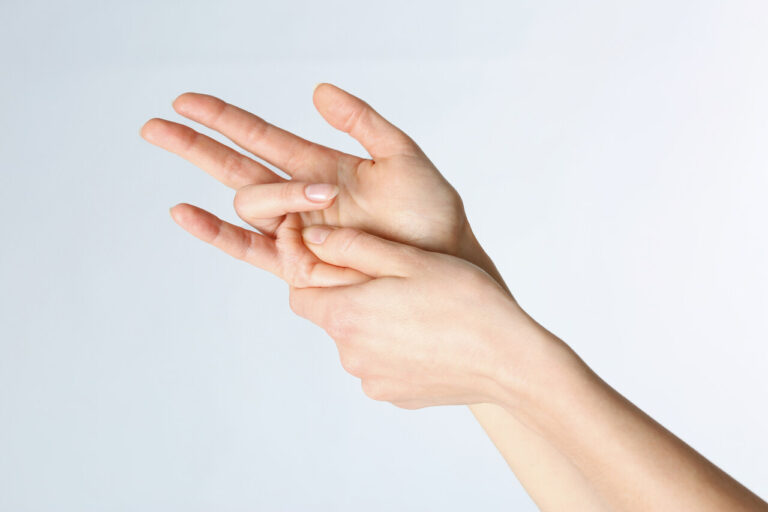Understanding Physiotherapy Treatments for Torn Rotator Cuff
A torn rotator cuff can significantly impact your daily activities, causing pain and limiting mobility in the shoulder. Understanding how these injuries occur, the role of physiotherapy in recovery, and how to properly manage the condition are essential for effective healing. This guide provides a detailed look at physiotherapy for managing a torn rotator cuff.
Causes of Rotator Cuff Injuries
Rotator cuff injuries are often the result of either acute trauma or gradual degeneration of the rotator cuff tendons. Here’s what typically leads to these injuries:
- Repetitive Strain: Activities that require repeated shoulder motions, especially overhead activities, can strain the rotator cuff muscles and tendons over time.
- Acute Injury: This can occur from a fall on an outstretched arm or lifting something too heavy with a jerking motion.
- Aging: As we age, blood supply to the rotator cuff tendons decreases, making the tissue more susceptible to tearing.
Understanding these mechanisms is crucial in preventing rotator cuff injuries and effectively treating them when they do occur.
How Physiotherapy for a Torn Rotator Cuff Works
Physiotherapy is an essential component in the treatment of torn rotator cuffs. It helps restore function and strength to the injured shoulder, reducing pain and preventing further injuries. Physiotherapists conduct a thorough assessment of the shoulder, including tests to determine the range of motion, strength, and functional limitations. This evaluation helps to tailor the treatment plan to the specific requirements of the injury. A typical treatment plan will include:
- Pain Management: Initial treatments focus on pain relief using modalities like ice, heat, TENS and other passive mobilities.
- Restoration of Mobility: Early treatment focuses on gentle exercises to maintain as much mobility in the shoulder as possible without exacerbating the injury. This is where the physiotherapist will bring you into the gym and work to find the hardest exercise you can do well with the affected shoulder. These exercises will focus on mobility at first then slowly progress toward more strength training.
- Strengthening: As recovery progresses, exercises aimed at strengthening the shoulder muscles and the rotator cuff are gradually introduced to restore function and prevent future injuries.
- Manual Therapy: Techniques such as massage and mobilizations are also used to reduce pain and improve movement in the shoulder.
Physiotherapy offers a non-invasive option that many individuals benefit from, especially in cases of partial tears.
Torn Rotator Cuff Recovery: The Role of Rest and Exercise
Balancing rest and exercise is key to recovering from a torn rotator cuff:
- Rest: Immediately after the injury, rest is vital to allow the natural healing process to occur without further aggravating the tear.
- Controlled Exercise: Once the acute phase has passed, targeted exercises prescribed by a physiotherapist are crucial. These help prevent stiffness and improve the functionality of the shoulder.
It’s important to follow the guidance of a physiotherapist who can provide a tailored exercise program that progresses as the injury heals.
Effective Exercises for a Torn Rotator Cuff
When recovering from a torn rotator cuff, it’s important to perform exercises that enhance mobility and strengthen the shoulder under the guidance of a physiotherapist. Here are a few recommended exercises:
- Pendulum Exercise: Lean forward, let the affected arm hang, and gently swing it in circles or back and forth.
- Wall Push-Ups: Face a wall, place palms on it at shoulder height, and perform push-ups against the wall.
- External Rotation with a Resistance Band: Hold a resistance band with the injured arm, keep the elbow at your side, and rotate the arm outward, then back.
- Isometric Shoulder Holds: Stand beside a wall with your elbow bent at 90 degrees, press your elbow gently against the wall, hold, and release.
Performing these exercises under the supervision of a physiotherapist ensures they are done correctly and safely, helping to effectively rebuild strength and mobility without risking further injury.
The Most Effective Type of Physiotherapy for a Torn Rotator Cuff
The type of physiotherapy recommended for a torn rotator cuff often depends on the tear’s severity and the individual’s overall health condition. The main goal is to alleviate pain and restore function through a personalized treatment plan:
Types of Physiotherapy Techniques
- Passive Exercises: These are movements performed by the therapist without the individual’s active participation, particularly beneficial in the initial stages when movement may be painful.
- Active Exercises: The client performs these exercises with their own muscle power, which is crucial for improving strength and flexibility as the shoulder begins to heal.
- Functional Training: This involves practicing tasks that are part of the client’s daily or sporting activities to ensure a safe and effective return to pre-injury activities.
Progressive Load Training
- Controlled Loading: Gradually increasing the load on the rotator cuff to rebuild strength and endurance without risking further damage to the tissue.
Education and Prevention
- Activity Modification Advice: Educating individuals on how to modify activities to avoid aggravating the shoulder during everyday tasks.
- Preventive Exercises: Teaching exercises that can help prevent future occurrences by maintaining shoulder health and stability.
The optimal physiotherapy approach for your specific condition will likely involve a tailored combination of these techniques to ensure effective recovery and prevention.
Regain Optimal Shoulder Mobility
Managing a torn rotator cuff can be quite challenging. Physiotherapy plays a pivotal role in recovering from this type of injury. Physiotherapists can help you regain mobility, strength, and confidence in your shoulder’s ability to perform daily tasks and activities.
At Therapeutic Streams in Oshawa, our team specializes in treating shoulder injuries like torn rotator cuffs. We provide personalized care plans to ensure the best outcomes for our clients. If you’re struggling with a torn rotator cuff, don’t wait to get help. Contact us today to schedule an appointment and take the first step towards a pain-free life.




